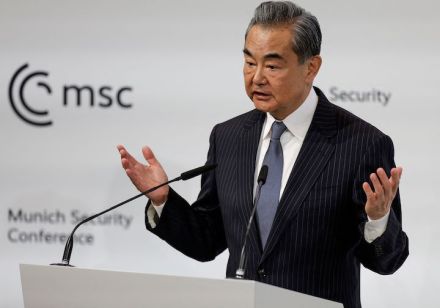China is playing the long game over peace in Ukraine
At the Munich Security Conference over the weekend, China’s foreign minister Wang Yi announced that his country was currently in consultations with ‘our friends in Europe’ over the framework of a peace proposal for Ukraine. It is to be laid out in full by President Xi Jinping on the first anniversary of Vladimir Putin’s invasion – 24 February. Beijing’s peace initiative would, said Wang, underscore the ‘need to uphold the principles of sovereignty, territorial integrity and the UN Charter’ but at the same time ‘respect [the] legitimate security interests of Russia’. On the face of it, it appears that Beijing is not saying anything new. Furthermore, both German Chancellor Olaf


